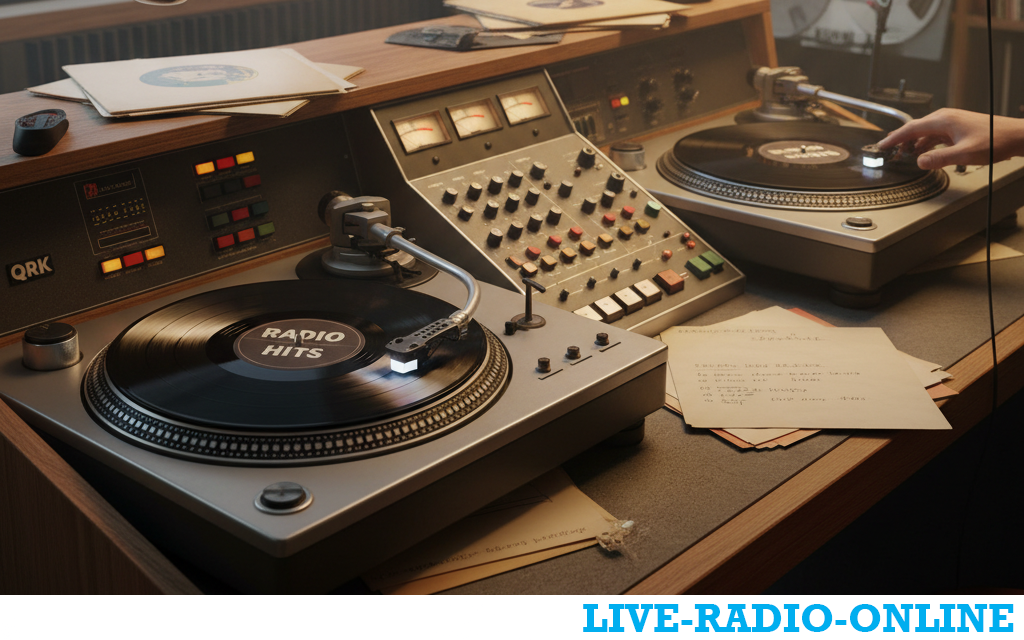
The use of turntables in radio has evolved dramatically, from being absolutely essential to becoming a specialized tool.
Here’s a breakdown of how often and why turntables are used in modern radio:
The Short Answer
Turntables are no longer a standard, daily piece of equipment in most mainstream radio stations for regular music playback. However, they are far from obsolete and are still used regularly for specific purposes, especially in certain genres and formats.
The Detailed Breakdown
1. The "Daily Driver" Use: Niche and Specialty Shows
This is where you'll find the most frequent use of turntables today.
-
College/Community Radio: Stations with a focus on underground, indie, or eclectic music often have DJs who prefer the tactile feel of vinyl and bring in their own records.
-
Specialist Music Shows: Dedicated shows for genres like Classic Rock, Blues, Jazz, Soul, Funk, and especially Hip-Hop often feature DJs who mix on turntables. For these formats, the vinyl record (and its associated "warm" sound) is part of the authentic experience.
-
Oldies/Classic Hits Stations: Some stations that play music pre-1980s might use turntables for a specific "retro" segment to emphasize the era they are celebrating.
2. The "Tool of the Trade" Use: Production and Imaging
This is a very common, behind-the-scenes use.
-
Creating Scratches and Sound Effects: Producers use turntables to record custom scratches, drum breaks, and other vinyl-based sound effects for station "imaging" (the sweeps, liners, and promos that identify the station).
-
Sampling: Radio production departments often sample short phrases or beats from vinyl records to incorporate into more complex audio productions.
3. The "Ceremonial" or "Nostalgic" Use
-
Special Events and Interviews: A station might set up a turntable for a special broadcast, like a "vinyl only" hour with a famous artist or producer. It serves as a visual and auditory prop that adds to the event's uniqueness.
-
Breaking a New Record: In a very rare and symbolic gesture, a station might play a highly anticipated album on vinyl when it's released as a promotional stunt, harkening back to a bygone era.
Why Did Turntables Become Less Common?
The decline of the turntable as the primary music source was driven by several key technological shifts:
-
The Digital Revolution (From the 1980s onward):
-
Cart Machines & Reel-to-Reel: These were the first steps away from vinyl for commercials and jingles.
-
Compact Discs (CDs): CDs offered perfect sound quality, no wear and tear, instant track access, and were much smaller and more durable.
-
Computer-Based Playback (1990s-Today): This was the final nail in the coffin. Systems like WideOrbit or Dalet store all music, ads, and jingles on a central server. DJs simply click on a song title in a playlist. This system is:
-
Extremely reliable: No skips, scratches, or worn-out grooves.
-
Highly efficient: Music logs can be built and updated remotely.
-
Seamless: Allows for perfect crossfades and automated playout.
-
-
-
Practicality: A radio station's music library on vinyl was massive, heavy, and required constant maintenance. A digital library exists on a hard drive.
The Modern Radio Studio Setup
A typical music radio studio today consists of:
-
A computer running broadcast automation software.
-
A digital mixer/console.
-
Microphones.
-
CD players (still often present as a backup).
-
A turntable (increasingly, this is an optional piece of equipment, not a standard one).
Conclusion
So, to summarize:
-
In mainstream Top 40, Pop, Country, and Talk Radio: Turntables are almost never used for daily music playback.
-
In Specialty, College, and Genre-Specific Stations (Hip-Hop, Classic Rock, etc.): Turntables are used regularly and actively by DJs who value the format.
-
In Station Production Rooms: Turntables remain a valuable creative tool for making unique sounds and effects, even if they aren't on the main air studio desk.
While the turntable is no longer the workhorse of radio, it has successfully transitioned from a necessity to a specialized instrument and a symbol of authentic music culture.


